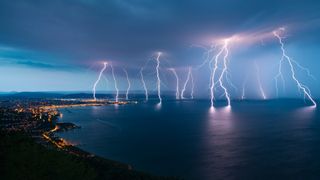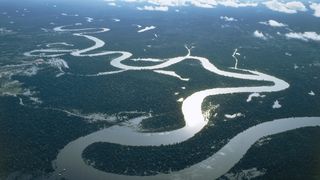
Ben Turner
Ben Turner is a U.K. based writer and editor at Live Science. He covers physics and astronomy, tech and climate change. He graduated from University College London with a degree in particle physics before training as a journalist. When he's not writing, Ben enjoys reading literature, playing the guitar and embarrassing himself with chess.
Latest articles by Ben Turner

Nobel Prize in physics goes to three scientists who discovered bizarre quantum effect on large scales
By Patrick Pester published
The 2025 Nobel Prize in Physics has been awarded to John Clarke, Michel H. Devoret and John M. Martinis "for the discovery of macroscopic quantum mechanical tunnelling and energy quantisation in an electric circuit."

Famed primatologist Jane Goodall dies, Iran sinks at an alarming rate, and scientists create human egg cells from skin
By Ben Turner published
Science news this week Oct. 4, 2025: Our weekly roundup of the latest science in the news, as well as a few fascinating articles to keep you entertained over the weekend.
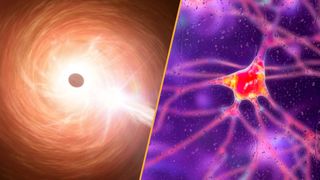
A breakthrough cure for Huntington's disease and a fast-growing black hole that breaks physics
By Ben Turner published
Science news this week Sept. 27, 2025: Our weekly roundup of the latest science in the news, as well as a few fascinating articles to keep you entertained over the weekend.
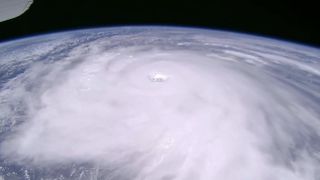
'A serious threat': China braces as Super Typhoon Ragasa, this year's strongest storm, nears with winds of up to 177 mph
By Ben Turner published
Millions across China are under evacuation or stay-at-home orders as the storm closes in on the country's southern coast.
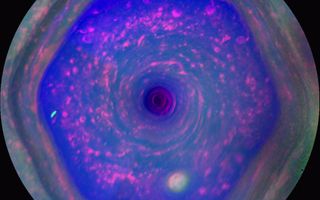
'Completely unexplained': James Webb telescope finds strange 'dark beads' in Saturn's atmosphere
By Ben Turner published
The beads appear above a swirling hexagonal jet stream at the gas giant's north pole, and could emerge from interactions between its magnetosphere and atmosphere.
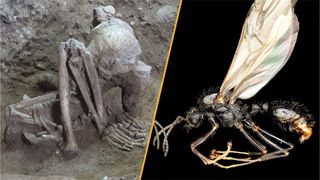
Science news this week: The world's oldest mummy, and an ant that mates with clones of a distant species
By Ben Turner published
Science news this week Sept. 20, 2025: Our weekly roundup of the latest science in the news, as well as a few fascinating articles to keep you entertained over the weekend.

'We certainly weren't exceptional, but now we're the only ones left': In new PBS series 'Human,' anthropologist Ella Al-Shamahi explores how humans came to dominate Earth
By Ben Turner published
Interview In her new show, Ella Al-Shamahi charts humanity's evolutionary odyssey. We sat down with her to discuss the path of our species out of Africa to global hegemony.
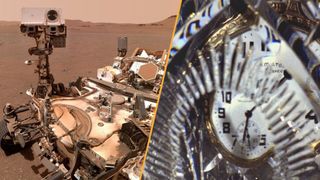
Science news this week: NASA finds best evidence of life on Mars and scientists invent visible time crystals
By Ben Turner published
Science news this week Sept. 13, 2025: Our weekly roundup of the latest science in the news, as well as a few fascinating articles to keep you entertained over the weekend.
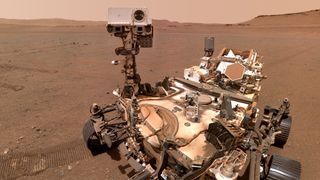
'Incredibly exciting': NASA claims it's found the 'clearest sign' yet of past life on Mars
By Ben Turner published
NASA scientists have found more intriguing details on speckled Martian rocks spotted by the Perseverance rover. But bringing samples back to Earth will be key.
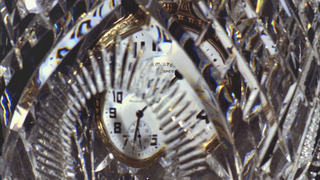
Scientists create first-ever visible time crystals using light — and they could one day appear on $100 bills
By Ben Turner published
The visible patterns produced by the time crystals could be used for data storage and anti-counterfeiting designs.
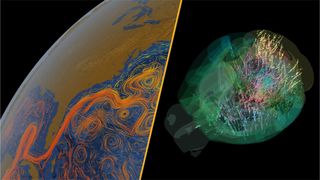
Science news this week: A key Atlantic current nears collapse, the world's biggest iceberg shatters, and mouse brains rewrite neuroscience
By Ben Turner published
Science news this week Sept. 6, 2025: Our weekly roundup of the latest science in the news, as well as a few fascinating articles to keep you entertained over the weekend.

Science news this week: A world first pig-to-human lung transplant, and SpaceX’s Starship nails a test flight
By Ben Turner published
Science news this week Aug. 30, 2025: Our weekly roundup of the latest science in the news, as well as a few fascinating articles to keep you entertained over the weekend.

10th time lucky! SpaceX's Starship nails successful test flight after string of explosive setbacks
By Ben Turner published
SpaceX's Starship rocket has finally reversed its fortunes.
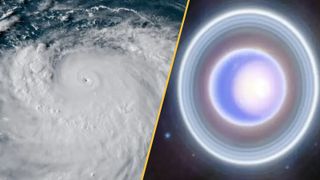
Science news this week: Storms rage on Earth and the sun, and a new moon is spotted around Uranus
By Ben Turner published
Science news this week Aug. 23, 2025: Our weekly roundup of the latest science in the news, as well as a few fascinating articles to keep you entertained over the weekend.
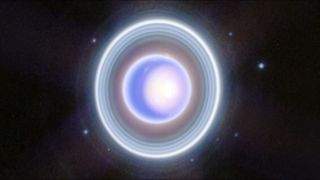
Uranus has a new, hidden moon, James Webb Space Telescope reveals
By Ben Turner published
Uranus' 29th moon was hidden inside the planet's dark inner rings, new observations from the James Webb Space Telescope reveal.

Scientists transform 'forever chemicals' in water into fluoride with new process
By Ben Turner published
Exposure to a sunlight-activated catalyst broke down 99% of a forever chemical, leaving behind recyclable fluoride.

Science news this week: Black holes galore and blue whales that still sing
By Ben Turner published
Science news this week Aug. 16, 2025: Our weekly roundup of the latest science in the news, as well as a few fascinating articles to keep you entertained over the weekend.
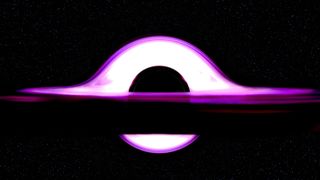
Paperclip-sized spacecraft could visit a nearby black hole in the next century, study claims
By Ben Turner published
An astrophysicist has made a daring proposal to send a nano-sized spacecraft to the heart of a black hole.

How 'flying boats' are bringing EVs to the ocean — with the help of LeBron James and Tom Brady
By Ben Turner published
A new electric motorsport championship is making an ambitious pitch to bring electric engines to the ocean — and Will Smith, LeBron James and Tom Brady are along for the ride.

Science news this week: A 400-year trip to Alpha Centauri and the malevolent AI that may make us consider it
By Ben Turner published
Science news this week Aug. 9, 2025: Our weekly roundup of the latest science in the news, as well as a few fascinating articles to keep you entertained over the weekend.
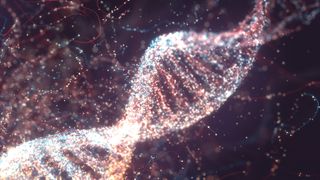
Scientists reveal how viruses hidden in our DNA control our genes
By Ben Turner published
A new study has revealed that "junk DNA" descended from ancient viruses could play a key role in controlling genes.
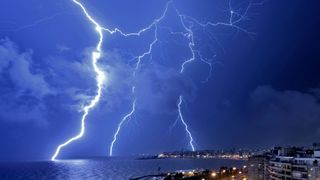
What's the longest lightning bolt ever recorded?
By Emma Bryce last updated
Lightning is one of the greatest natural forces on our planet. New mapping tools are revealing just how big it is.
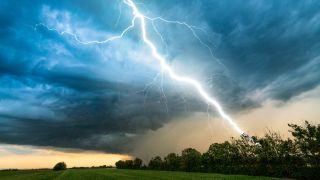
515-mile-long lightning bolt that spanned 5 states is the longest on record
By Ben Turner published
A lightning "megaflash" that zipped across five U.S. states has set a new record for the longest ever detected.
Get the world’s most fascinating discoveries delivered straight to your inbox.
